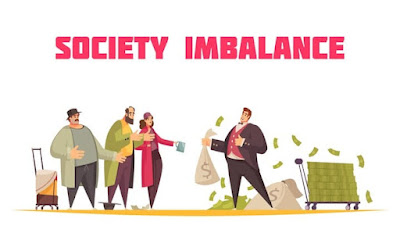The Best Star-Wars Scenario for the Artificial Intelligence (AI) Revolution
AI and the Importance of Regulation from a Star-Wars Perspective
By
While the uses and capabilities of artificial intelligence (AI) continue to grow at a fast pace, the head-long rush into new frontiers could have significant drawbacks. As Anton Korinek, an AI expert at the University of Virginia, described in a recent blog, AI systems could soon replace relatively unskilled cognitive workers, like people who work in call centers or low-level accountants. More disruptively, such systems could eventually learn to do more complex tasks, take over robotics and manufacturing, and displace manual laborers and highly skilled cognitive workers, causing wages to crash and inequality and hardship to deepen.
Such a dystopia would not be far from some of the scenarios depicted in Star Wars, that futuristic saga of events in a galaxy far, far away, where worlds of oppression and injustice co-exist with others aiming for a more perfect order. And as Korinek indicates, a more perfect order is possible. Indeed, the extent to which AI disrupts the labor market and how much it affects people, may well depend on the degree of regulation governments establish. Consider as analogies, three different cases from the Star Wars universe.
Anarchic State: The Outer Rim Territories
In the Star Wars galaxy, the Outer Rim Territories often represent a rugged, lawless or less regulated area where the central government’s influence is weak and predators roam. This can be likened to countries that don’t regulate AI, leading to a kind of anarchy where innovation is unbridled and the risks associated with unchecked AI development abound. A lack of regulation can spur rapid technological advances. But it can also lead to ethical dilemmas, misuses of technology, and harm to society, as happens in planets like Tatooine, which is controlled by wealthy and powerful crime lords, but where most inhabitants, including small-town residents and farmers, live in poverty or just scrape by. Such an imbalance creates a stark contrast between the powerful few and the impoverished majority. Unfortunately, many countries in Latin America and the Caribbean may end up in a similar equilibrium. AI in such a scenario would grow, as would productivity and wealth. But its fruits would benefit only those with access to the means of production, rather than the populace as a whole.
Authoritarian Regulation: The Galactic Empire
The Galactic Empire represents a highly centralized and authoritarian regime where control is exercised over many aspects of life, including technology and scientific advancement. In this analogy, the Empire’s approach to regulation might create rents — privileges granted by the government in response to lobbying or other manipulation — in the same way that poorly implemented AI regulations could favor certain industries or companies. This can stifle innovation in other sectors. It can concentrate power and wealth, leading to inequality and potential abuses of power, akin to how the Empire benefits a select few while suppressing the majority. Some countries in our region will try to prevent the negative effects of AI. They will regulate what can and can’t be done with it. For example, AI may be used to check legal documents, but a lawyer may still need to sign off. It could be used to diagnose patients, but a doctor would still need to sign the prescriptions. In other words, to preserve certain jobs, many tasks that could be done independently and unburdened by bureaucracy may still have to pass through physical hands. Some people will benefit from these rents created by the government. But those not so lucky to be part of a guild or pressure group may lack access both to the benefits of AI and the government-protected rents.
Balanced Regulation: The Galactic Republic
Before its fall, the Galactic Republic was a democratic union that governed a large portion of the galaxy. It represents a more balanced and fair approach, striving to benefit all. This would be akin to well-thought-out policies and regulations that aim to tax excess profits and ensure that the benefits of AI advancements are broadly shared across society. Such regulation would ideally mitigate risks. It would promote innovation and fairness, ensuring that AI serves the public good and doesn’t lead to significant societal disparities. Governments would let AI flourish and achieve its massive potential for increasing prosperity and wealth. But they would also find ways to redistribute the benefits in ways that maximize welfare.
Choosing the Best Star-Wars Scenario for the AI Revolution
Government decisions will be crucial in determining which of these scenarios characterize countries in Latin America and the Caribbean. Anarchy and the Empire are not difficult to achieve. Governments in the region, which have traditionally been known for introducing bad and distorting regulation could easily facilitate one of those two realities. Becoming the Galactic Republic is much harder. To reach that more enlightened state, governments have to invest resources to understand the benefits and pitfalls of AI, generate the conditions for its development, and control its excesses. They also have to develop a strong social safety net, improve the way they levy taxes — when, where and on what — and make significant investments in public goods and infrastructure. Individuals, in the meantime, will have to find alternative ways of working so they can flourish individually and as a group. Investing in government capabilities to deal with the new realities created by AI is long overdue. Unfortunately, many governments may be too passive, delaying till it’s too late. At that stage, there may be only two choices: that of the anarchic state or the state that benefits only the powerful few.



